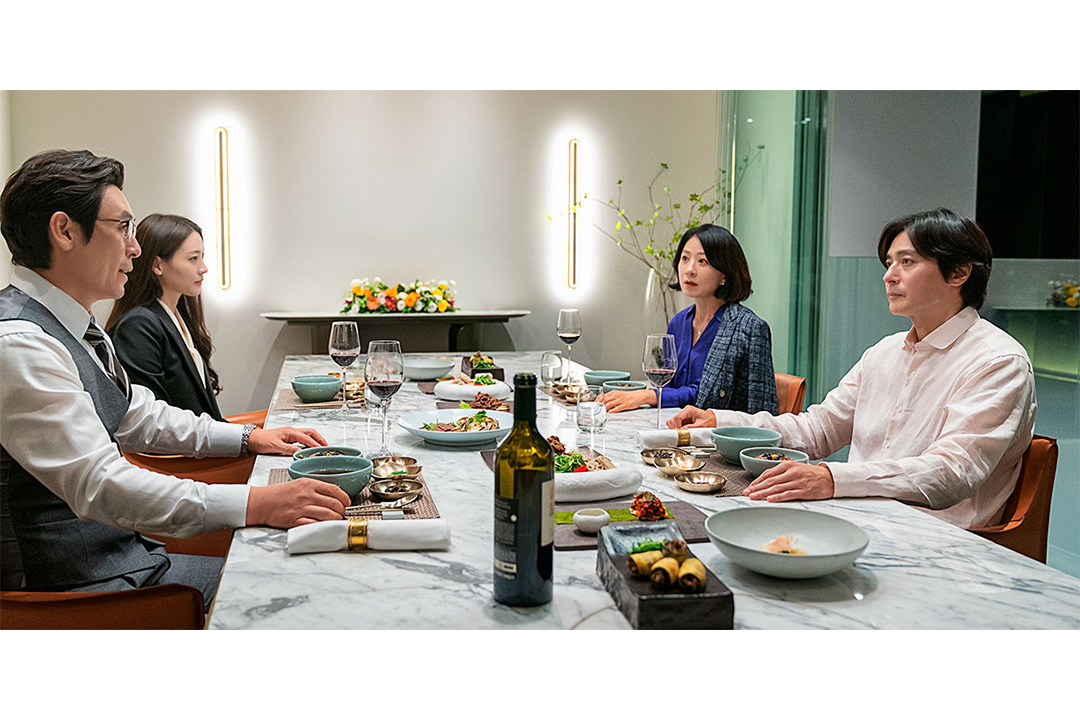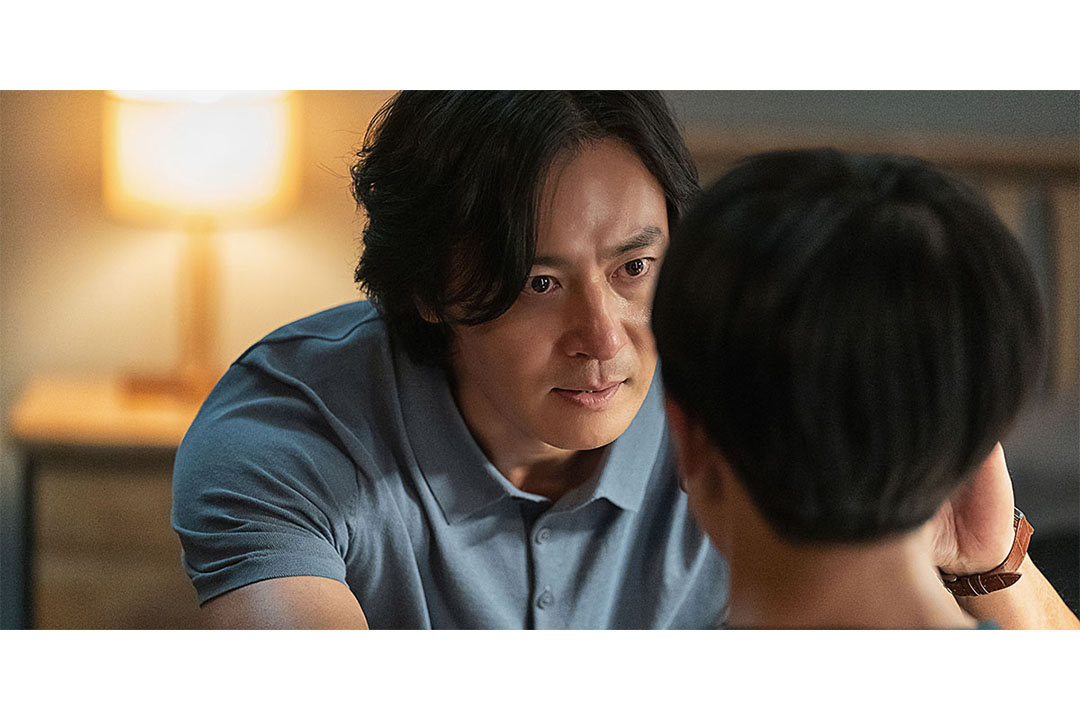Dinner parties can never go right.
Or at least that’s the narrative South Korean directors have been keenly pushing. Korean cinema has produced movies that slowly build their characters’ downfall over dinner. Five years ago, it was Intimate Strangers by Lee Jae-gyu, in which the friendships of the star-studded cast began to fall apart over the course of a meal through ensuing smartphone notifications.
In director Hur Jin-ho’s recent film, which was selected for the Toronto International Film Festival’s Gala Presentations, a high-profile cast plays out a suspenseful drama, with two extravagant dinner parties serving as major turning points. Hur modeled the film after Herman Koch’s Dutch novel Het Diner (The Dinner), a book that has already been adapted thrice across Europe and America. Premiering precisely a decade after the Dutch adaptation screened at TIFF, A Normal Family’s record as the first Asian adaptation of The Dinner can be intriguing enough for longtime fans of the novel and original adaptation.
A Normal Family invites the audience into the interwoven world of two brothers — Jae-wan (Sul Kyung-gu) and Jae-gyu (Jang Dong-gun) — who desperately seek justifiable, moral grounds for their children’s crime in order to avoid their responsibility.
As an attorney, Jae-wan’s moral compass is established from the onset of the film: it’s nonexistent. Any airily unrepentant criminal with money can be painted as a remorseful, lowly citizen with the magic of Jae-wan’s expertise — even when the criminal kills a man and sends his daughter to the ER by crashing into them with his Maserati over an argument.
When this happens, the critically injured daughter is treated by Jae-wan’s brother, Jae-gyu, whose morals as a pediatrician directly contrast those of Jae-wan. Every child passing by the hallways of the hospital is fond of Jae-gyu, as he is of them, and his family is repeatedly reminded of his ethos, “정정당당하게” — play it fair and square.
While the families convene over a luxurious dinner, their children are caught committing an awful crime. The brothers’ differing values in life and occupation lead to their children’s differing methods of coming forward as accomplices: Jae-wan’s daughter Hye-yoon (Hong Ye-ji) slyly demands legal advice from him for the case, while Jae-gyu’s son Si-ho (Kim Jung-chul) fearfully denies his crime as much as he can.

As the two couples dramatically open their eyes to their children’s shadows, the physical and psychological tension between the brothers’ wives, Yeon-kyung (Kim Hee-ae) and Ji-su (Claudia Kim), nearly overshadows the brothers’ performances due to the phenomenal work of both actresses. Yeon-kyung blindly accepts her son’s denial of his crime, but this does not come across as laughable, because Kim Hee-ae’s portrayal of love on screen always works like a charm. Her nuanced performance as a doctor’s wife, taking care of both her mother-in-law and son, is done with her usual, theatrically compelling flair.
Despite this being her first Korean language film, Claudia Kim was very in touch with the inherently Korean cultural portrayal of the rice-cake-bakery-employee-turned-attorney wife. While her character as a pilates aficionado is initially depicted as the mere shallow trophy wife of Jae-wan, her sensitivity becomes one of the driving forces of the plot.
While the movie drives the children’s case up to the point of climax during a second dinner, Hur meddles with our preconceived notions of the two couples’ moral grounds in a fairly predictable but cinematically perturbing manner. Not only does he twist the audience’s perception of a ‘normal’ family, but he also toys with the couples’ comfortable and seemingly pristine lives.
What adds to the intrigue is that Hur’s deviations from Koch’s work, replacing elements of the story with distinctly Korean aspects of society and culture. The criminally sociopathic teenagers are notably graced with some depth in their characters through the portrayal of omnipresent Korean hagwon cram schools and severe bullying that occurs there. Such allusions seem to bring the upper-class families’ story down to earth, as if the couples are reminding the audiences: “We are the same because, we send our kids to hagwons, you send your kids to hagwons; we have issues with our kids, you have issues with your kids.”
The movie attempts to be less of a classic eat-the-rich movie about privilege and tries to question the audience about what they would do if the situation in the film happened to them. A truly normal family in South Korea, however, would not even have the privilege of the prolonged moral contemplation that the film’s couples had. Surprise: the average Korean daughter does not have a wealthy attorney to consult with on her crimes. Hur’s attempt to deviate from the typical anti-capitalist film while discussing capitalist privilege was trying to put too many eggs in a film roll basket: A Normal Family is redeemed only by its powerful performances.
Editor’s note (September 25): An earlier version of this article incorrectly stated that the character Jae-wan killed a man and crashed into his daughter with a car, when, in fact, this was done by a different character.



No comments to display.